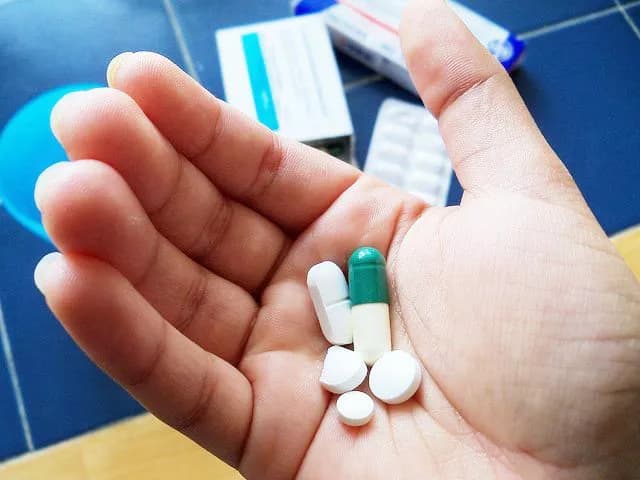
Drug-Related Reward Centers In The Brain Could Be Activated Without Drugs
The reward centers of the brain get activated when an individual uses addictive and dangerous drugs. A study from the University of Columbia, Missouri, USA, now states that it is possible to activate the reward centers in the brain by activating mu-opioid receptors, which regulate dopamine release, and sidestep the need for a person to take drugs on his or her path to recovery from addiction.
The brain’s reward center records all pleasures in the same way- by releasing dopamine- in the structure known as the nucleus accumbens. Nucleus accumbens is a bunch of nerve cells located under the brain’s cortex and is termed as the brain’s “pleasure center” by neuroscientists. The triggers for activating the pleasure center could be varied, such as alcohol, good food, sex, drugs, and exercise.
The mu-opioid receptors regulate the release of dopamine, thus activating the reward center. The role played by the mu-opioid receptor in exercise-induced pleasure derivation is unclear and is the basis of the current study.
The researchers bred female rats that were motivated for either low voluntary running (LVR) or high voluntary running (HVR). The behaviors of these rats were characterized in terms of gene expression in the pleasure center of the brain. The rats were also treated with chemicals that could enhance or suppress the action of mu opioid receptors. The results show that:
- There was a 4-fold increase in receptor numbers in the HVR, compared to LVR rats, indicating that active rats were “ready” to receive rewards via their mu-opioid receptors.
- An increased gene expression relating to opioids was observed in the nucleus accumbens of HVR rats when compared to LVR rats.
- Using a chemical to turn “on” the mu-opioid receptors made the HVR rats lazy to a great extent.
- Shutting “off” the mu-opioid receptor signaling also made the HVR rats lazy, but to a much lesser extent.
- There was no effect of turning the opioid receptors “on” or “off” on the LVR rats.
In essence, the study strongly suggests that vigorous exercise could offer the same pleasure as drug use and that the behavior could be modulated by altering dopamine levels, brought about by changes in the activity of mu-opioid receptors.
According to a World Health Organization report (2002), psychoactive substance abuse is a global problem, with over 3 billion individuals using alcohol, drugs or tobacco. Given the emotional, physical, and financial problems that substance abuse could potentially cause, de-addiction and rehabilitation programs are geared toward providing alternatives for patients to set them on their path to recovery. The current study and others suggest that de-addiction programs could be successful if patients are induced to substitute drug with exercise.
The lead author, Greg Ruegsegger, concurs. Talking about the findings to the University of Missouri News “Since exercise and addiction to substances follow this same chemical process in the brain, it stands to reason that activating these receptors in people with dangerous addictions could provide the same rewards they are craving without the use of dangerous drugs or alcohol.”
Written by Mangala Sarkar, Ph.D.
Primary References
Ruegsegger, G., Toedebusch, R., Will, M., & Booth, F. (2015). Mu opioid receptor modulation in the nucleus accumbens lowers voluntary wheel running in rats bred for high running motivation. Neuropharmacology, 97, 171-181.
Extremely Active Rats Become Lazy when They Artificially Receive “Runners’ High”. (n.d.). Retrieved October 13, 2015, from http://munews.missouri.edu/news-releases/2015/1006-extremely-active-rats-become-lazy-when-they-artificially-receive-runners-high/
DoveMed Resources
Substance Abuse and Addiction in Adults. (n.d.). Retrieved October 13, 2015, from http://www.dovemed.com/diseases-conditions/substance-abuse-and-addiction-adults/
Substance Abuse and Addiction in Teens. (n.d.). Retrieved October 13, 2015, from http://www.dovemed.com/diseases-conditions/substance-abuse-and-addiction-teens/
Additional References
Understanding Addiction. (n.d.). Retrieved October 13, 2015, from http://www.helpguide.org/harvard/how-addiction-hijacks-the-brain.htm
The global burden. (n.d.). Retrieved October 13, 2015, from http://www.who.int/substance_abuse/facts/global_burden/en/
Smith, M. A., & Lynch, W. J. (2011). Exercise as a Potential Treatment for Drug Abuse: Evidence from Preclinical Studies. Frontiers in Psychiatry, 2, 82. http://doi.org/10.3389/fpsyt.2011.00082
Related Articles
Test Your Knowledge
Asked by users
Related Centers
Related Specialties
Related Physicians
Related Procedures
Related Resources
Join DoveHubs
and connect with fellow professionals

0 Comments
Please log in to post a comment.